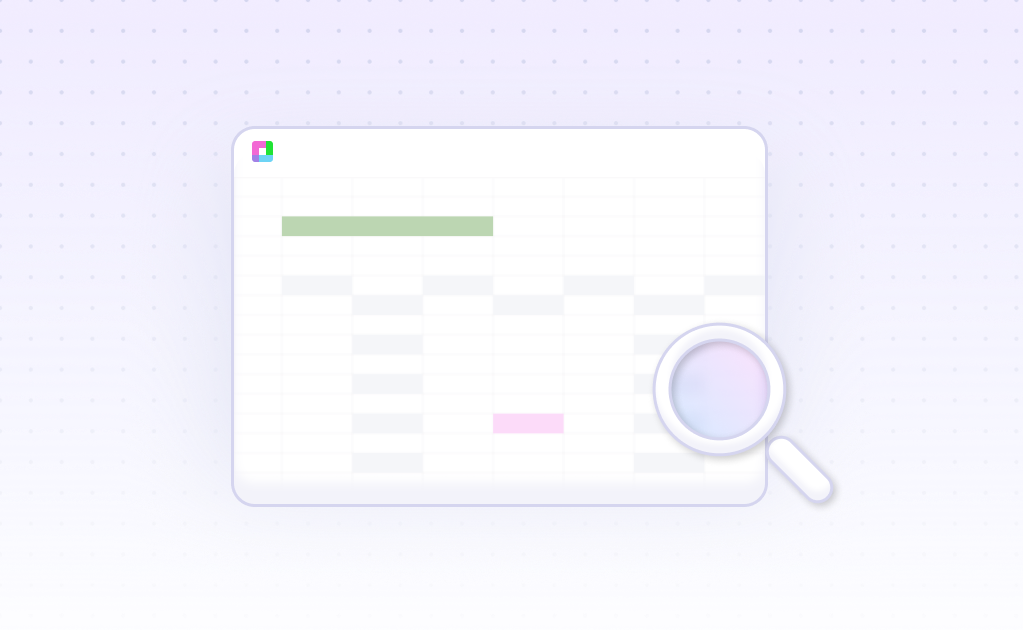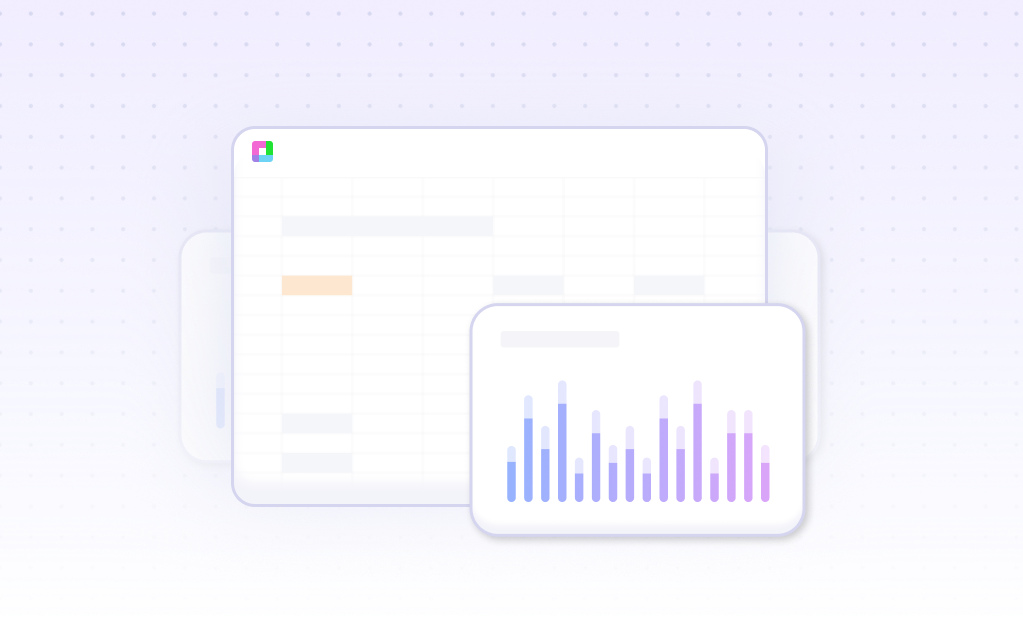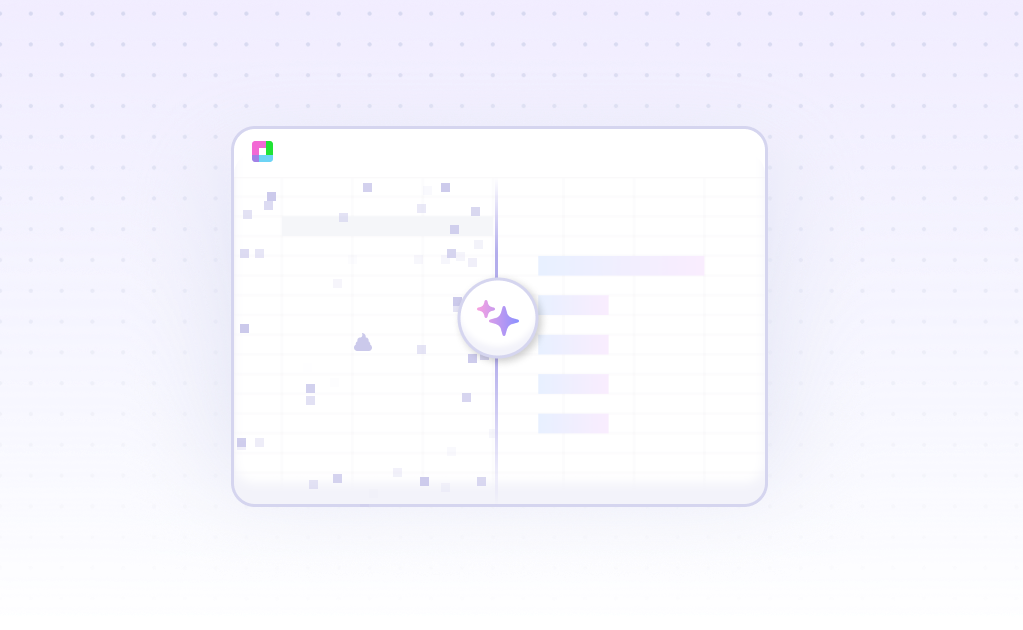
Introduction
Macroeconomic account analysis traditionally relies on Excel's capabilities for sorting data, retrieving subtotals, and automating tasks through macros. However, Sourcetable offers a revolutionary AI-powered alternative that transforms spreadsheet analysis. This new platform combines spreadsheet functionality with an AI chatbot that responds to natural language commands and provides data-driven suggestions.
Sourcetable's AI assistant accelerates formula creation, charting, and data cleaning while integrating with over 100 data sources. Organizations can leverage predictive AI to analyze crucial macroeconomic indicators, forecast economic performance, and run scenario analyses. This comprehensive approach helps businesses optimize supply chains, understand labor markets, and make strategic investment decisions based on economic trends.
Learn how Sourcetable's AI-powered platform streamlines macroeconomic account analysis without requiring advanced Excel expertise.
Why Sourcetable Is Superior for Macroeconomic Analysis
Sourcetable revolutionizes macroeconomic analysis through its advanced AI capabilities and specialized flow of funds framework. While Excel relies on basic pivot tables, Sourcetable provides comprehensive analysis of interrelationships between economic sectors, tracking surpluses, deficits, and their financing mechanisms.
The platform's AI-powered features automate complex calculations, identify patterns, and generate insights from large datasets with minimal human error. This automation allows analysts to focus on high-value activities rather than manual data entry and calculation.
Flow of Funds Analysis
Sourcetable's schematic accounts system provides detailed analysis of transactions between economic sectors through three major blocks: nonfinancial transactions, saving-investment balances, and financial transactions. This structured approach enables deeper understanding of interactions between financial and nonfinancial spheres.
The platform excels at analyzing sector imbalances and their ripple effects across the economy. It tracks broad categories of market instruments in financial transactions and helps formulate behavioral hypotheses for consistent financial program checks.
Data Integration and Visualization
Unlike Excel's manual data handling, Sourcetable seamlessly integrates domestic and foreign economic data, balance of payments, and monetary surveys. Its AI algorithms clean and validate data automatically, improving analysis quality and reliability.
Sourcetable transforms complex macroeconomic data into comprehensive visualizations through natural language commands, making insights more accessible and actionable for stakeholders.
Macroeconomic Analysis Benefits with Sourcetable vs Excel
Macroeconomic analysis provides essential benefits across multiple sectors. Consumers, firms, and governments rely on this analysis to make informed decisions about economic factors.
Sourcetable Advantages for Macroeconomic Analysis
Sourcetable offers key advantages over Excel for macroeconomic analysis. Its no-code calculators and extensive integrations make data processing more efficient. The platform's AI capabilities enable natural language queries, automated data analysis, and direct OpenAI integration through the ASK_OPENAI formula.
AI-Powered Analysis Features
Sourcetable's AI tools enhance analytical capabilities through features like Add Columns for AI calculations, Get Answers for business insights, and Ask Anything for natural language processing. The AI Analyst feature provides automated data analysis, streamlining the macroeconomic research process.
Macroeconomic Account Analysis with AI-Powered Spreadsheets
AI-powered spreadsheets enable sophisticated macroeconomic analysis through advanced forecasting, data processing, and visualization capabilities. These tools combine traditional spreadsheet functionality with machine learning and artificial intelligence.
Forecasting and Time Series Analysis
Modern spreadsheet platforms leverage AI-powered forecasting functions to predict future values from historical data. Analysts can implement moving averages, exponential smoothing, and regression analysis for complex time series forecasting. Neural networks identify intricate patterns in economic data sets.
Data Processing and Integration
Power Query capabilities enable automated data retrieval from web APIs, while XLOOKUP functions provide dynamic data access. Natural language processing analyzes qualitative economic indicators. The CRISP-DM framework structures predictive modeling workflows.
Visualization and Insights
AI-powered visualization suggestions help create compelling economic data presentations. Pivot tables facilitate exploratory analysis of large datasets. Advanced formulas support sophisticated model building, while scenario managers enable sensitivity analysis of economic variables.
Digital Advertising Analysis
Specialized tools analyze welfare benefits of digital advertising in the macro economy. These analyses reveal how digital advertising increases consumer welfare through free media access and enhanced price competition, while reducing firm advertising costs through precise targeting.
Use Cases for Macroeconomic Account Analysis with Sourcetable
Real-Time Financial Forecasting |
Automate data ingestion and model training to generate dynamic cash flow projections. Process complex datasets to predict revenue, expenses, and profitability with improved accuracy measured by |
Market Efficiency Analysis |
Analyze customer acquisition trends and sales patterns to project market demand. Perform sensitivity analysis and scenario simulations to predict financial outcomes under various economic conditions. |
Productivity Enhancement |
Reduce financial model building time from weeks to hours through automated calculations and reporting. Enable less experienced workers to perform high-skilled financial analysis with AI-assisted tools. |
Advanced Data Analytics |
Process vast financial datasets in real-time to identify hidden patterns and improve forecast accuracy. Generate automated reports with enhanced precision for budgeting and strategic decision-making. |
Frequently Asked Questions
What macroeconomic data sources can I analyze in Sourcetable?
Sourcetable provides access to major macroeconomic databases including BEA national/regional/international accounts, World Bank GDP data, IMF World Economic Outlook database, International Financial Statistics, and UNdata. It also contains trade data, US Census Data, IPUMS, and foreign direct investment data from UNCTADStat.
How can I analyze macroeconomic data in Sourcetable using AI?
Sourcetable's AI copilot allows you to analyze data using natural language queries, create charts, clean data, and generate SQL queries. You can upload CSV files or connect to over 100 business applications, then use LLMs to analyze the data, create formulas, handle errors, and generate summaries. The platform processes billion-row datasets in sub-second time using cloud computing.
What advantages does Sourcetable offer over traditional spreadsheet tools for macroeconomic analysis?
Sourcetable combines familiar spreadsheet features (A1 notation, 500+ formulas) with powerful AI capabilities and cloud computing for faster analysis. It supports 3D/4D data visualization, vector queries, and near real-time model updates. The platform can analyze larger datasets than Excel and provides an AI assistant to help with queries and analysis.
Conclusion
Excel offers essential tools for macroeconomic account analysis through macros, column sorting, and subtotal calculations. However, Sourcetable provides an AI-powered alternative that streamlines this process. With AI-driven formulas like SUM and VLOOKUP, automated data cleaning, and integration with SQL and Python, Sourcetable simplifies complex macroeconomic analysis.
Beyond basic spreadsheet functions, Sourcetable's AI capabilities transform economic data analysis through voice-driven interactions, automated chart generation, and connections to over 100 platforms and databases. This AI-driven approach aligns with emerging research showing AI's potential to enhance productivity and improve work experience.
Ready to revolutionize your macroeconomic analysis? Try Sourcetable's AI-powered platform at sourcetable.com/signup.
Recommended Analysis Guides
Connect your most-used data sources and tools to Sourcetable for seamless analysis.
Frequently Asked Questions
If your question is not covered here, you can contact our team.
Contact Us




